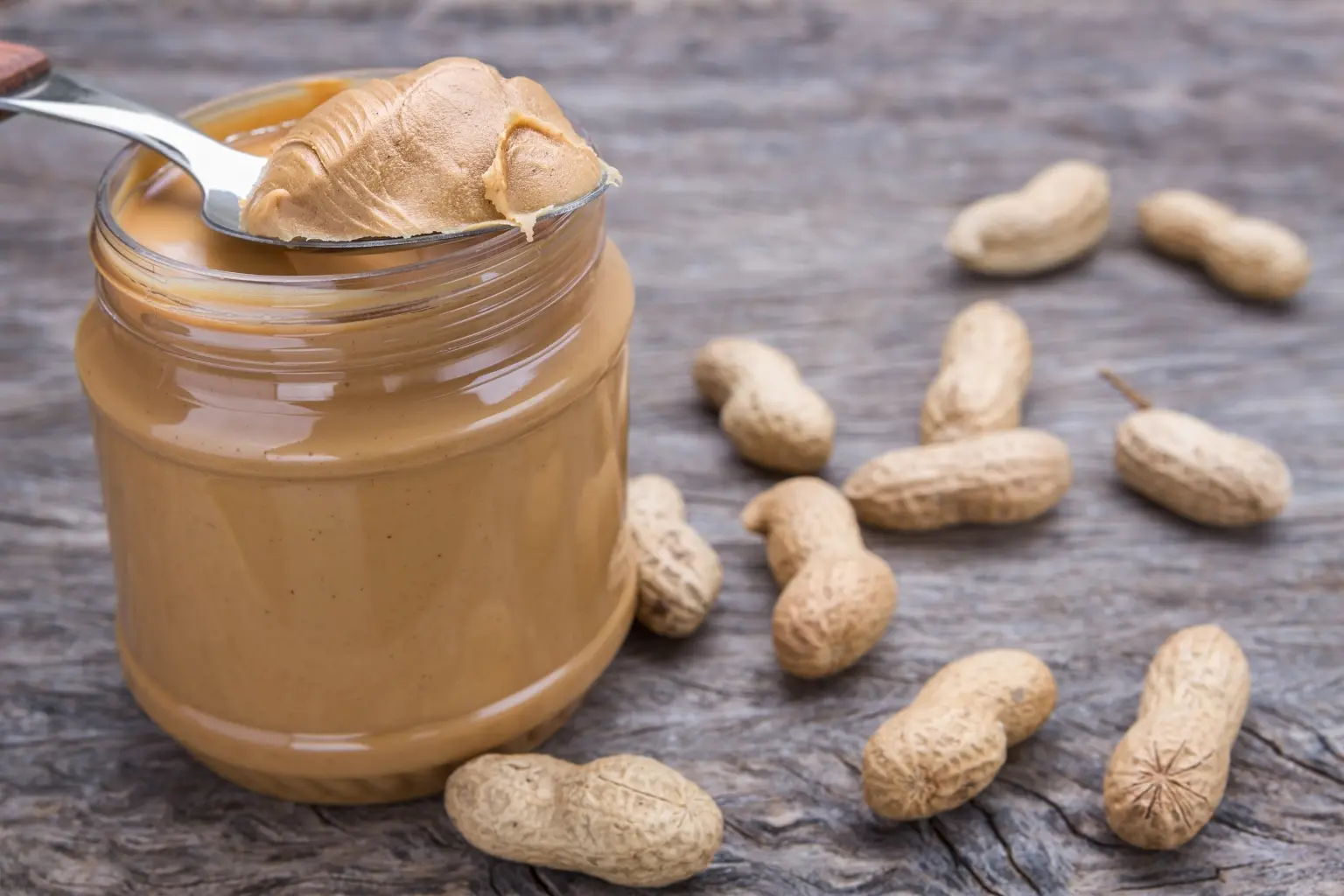Researchers suggest that introducing smooth peanut butter to babies and continuing its consumption throughout early childhood may provide lifelong protection against peanut allergies.
According to a study conducted by King’s College London, teenagers who ate peanut butter up until the age of five were 71% less likely to develop a peanut allergy compared to those who avoided it.
The researchers recommend that parents introduce peanut butter during weaning and continue to offer it regularly and in substantial amounts until the child reaches age five.
It is important to note that children under five should not be given whole or chopped peanuts due to the risk of choking.
This advice stands in stark contrast to previous recommendations that advised avoiding peanuts entirely until age three, out of fear of allergies.
With peanut allergies becoming increasingly common—now affecting one in 50 children—and peanuts being banned in many schools, this new guidance represents a significant shift in understanding.
The research from King’s College London has revealed that the earlier advice was incorrect. Instead, the early years of life are crucial for the immune system to learn to differentiate between harmful and harmless substances.
Food allergies occur when the immune system mistakenly identifies something benign as a serious threat, causing a severe and potentially life-threatening reaction to even a small amount of peanuts.
Approximately 15 years ago, a clinical trial involving 640 children at high risk of developing a peanut allergy began.
Half of the participants avoided peanuts, while the other half included peanuts in their diet from four months to five years of age.

The initial results showed that consuming peanut butter significantly reduced the incidence of allergies by the time the children turned five.
The current findings, published in NEJM Evidence, confirm that this protective effect persists even if the children stop consuming peanuts after age five. The data from their teenage years revealed:
- 15 out of every 100 high-risk children who avoided peanuts as infants developed an allergy
- Only 4 out of every 100 high-risk children who regularly consumed peanuts as infants developed an allergy
- This represents a 71% reduction in allergy rates
- Continuation of peanut consumption beyond age five did not impact these results
Prof. Gideon Lack from King’s College London expressed his satisfaction with these results, stating, “I’m delighted to see this protection continues into adolescence.”
He further noted, “We have good reason to believe [it will last] for the life of the individual; it is extremely unusual to see new onset of peanut allergy in adolescent years.
This simple intervention will make a remarkable difference to future generations and see peanut allergies plummet.”
The researchers advise incorporating a soft peanut butter paste or peanut puffs into a baby’s diet once they are ready for solids, which includes:
- Being able to sit upright with a steady head
- Coordinating their eyes, hands, and mouth to handle food
- Swallowing food rather than spitting it out
Once introduced, peanut butter should be consumed three to four times a week, totaling about one and a half to two tablespoons per week.
This approach ensures that peanuts are introduced into the digestive system, where they are more likely to be recognized as food rather than a potential threat.
Although the team suggests starting at four months if feasible—before food allergies commonly develop—the UK’s National Health Service (NHS) permits introducing smooth peanut butter at six months.
The World Health Organization (WHO) recommends exclusive breastfeeding for the first six months.
It remains uncertain whether continuous peanut consumption for the full five years is necessary to maintain reduced allergy risk or if the impact is confined to the early developmental period.
Prof. Lack asserts that “the safest and wisest” approach would be to continue for the full five years, as “we’re talking about normal nutritious foods, not medication.”
The researchers estimate that this strategy could prevent 100,000 cases of peanut allergy globally each year. The study was funded by the US National Institute of Allergy and Infectious Diseases.
Dr. Jeanne Marrazzo, director of the institute, stated, “Today’s findings should reinforce parents’ and caregivers’ confidence that feeding their young children peanut products beginning in infancy according to established guidelines can provide lasting protection from peanut allergy.”
